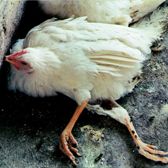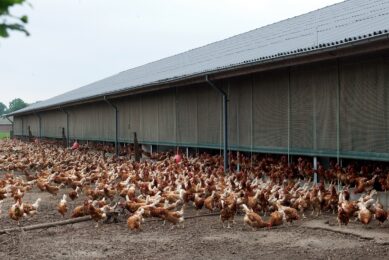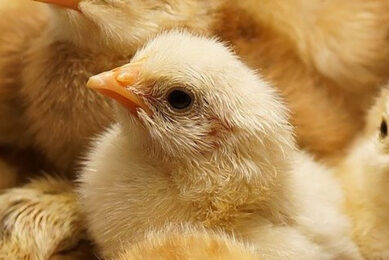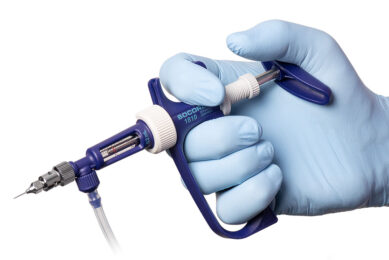Scientists genetically engineer Marek’s disease vaccine

Experimental versions of the first genetically engineered Marek’s disease vaccine for poultry are being developed by Agricultural Research Service (ARS) scientists in Michigan.
Scientists at the ARS Avian Disease and Oncology Laboratory (ADOL) are testing the vaccines with an eye toward producing the next-generation vaccine against Marek’s disease. These recombinant DNA vaccines should provide protection longer than previous versions of the vaccine, possibly buying the time needed to breed the first generation of Marek’s-resistant chickens, using other modern genetic techniques.
Since the lab’s founding in the 1930s, scientists there have held the tumour-causing Marek’s disease in check. In 1972, ARS veterinary medical officers developed the first vaccine against Marek’s, as well as several updates as the disease evolved. It’s still a major threat to the poultry industry, because new strains continue to emerge to challenge the current vaccine.
The lab was formed during an epidemic of what was then called avian ‘leucosis complex’, which was later found to comprise Marek’s, avian leucosis virus and other viral diseases. The small team of ADOL scientists has fought ever since to stay at least one step ahead of those and other emerging chicken diseases.
The researchers are also breeding chickens resistant to Marek’s and other diseases, using the chicken genome map and other genetic tools. ADOL scientists helped map the chicken’s genome – the first barnyard animal to have its genes mapped.
They also rely on 19 lines of chickens bred specially to make identification of disease-resistance genes easier. These are the latest addition to a collection of more than 50 inbred lines of chickens in a unique gene pool maintained since the 1930s in live chickens that are carefully quarantined and protected.
Join 31,000+ subscribers
Subscribe to our newsletter to stay updated about all the need-to-know content in the poultry sector, three times a week. Beheer
Beheer








 WP Admin
WP Admin  Bewerk bericht
Bewerk bericht